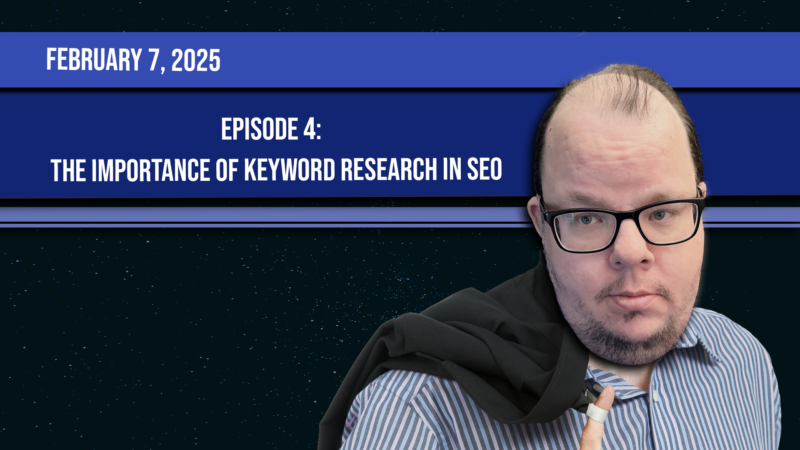Watch the Podcast!!
Understanding Keyword Research
Keyword research is the foundation of any successful search engine optimization (SEO) strategy. It involves identifying the words and phrases that users enter into search engines when looking for information, products, or services. By optimizing content around these keywords, businesses can increase their online visibility, attract relevant traffic, and improve their chances of ranking higher in search engine results pages (SERPs). Without keyword research, even the most well-crafted content may go unnoticed, buried beneath countless competing pages.
Driving Targeted Traffic
The ultimate goal of SEO is to attract visitors who are genuinely interested in what a website has to offer. Keyword research helps ensure that the right audience finds the right content at the right time. By understanding user intent—whether informational, navigational, or transactional—marketers can align their content with what searchers are actually looking for. Using high-intent keywords increases the likelihood of conversions, as these users are more likely to engage with the content, make a purchase, or take the desired action.
Gaining Competitive Advantage
Businesses that conduct thorough keyword research can stay ahead of their competitors. By analyzing which keywords competitors rank for, companies can identify gaps in their own strategies and find opportunities to target less competitive but highly valuable search terms. Long-tail keywords, which are more specific and less commonly searched, often offer a better chance of ranking higher with less competition. Targeting these keywords allows businesses to capture niche markets and build authority in their industry.
Enhancing Content Strategy
Keyword research is essential for shaping an effective content strategy. By identifying trending topics and popular search queries, content creators can develop relevant, engaging, and valuable articles, blog posts, product descriptions, and landing pages. This ensures that content remains fresh and aligned with what users are actively searching for. It also helps businesses avoid wasting time on topics that have little search interest or are too competitive to rank for.
Improving On-Page Optimization
Once the right keywords are identified, they must be strategically placed throughout a webpage. This includes incorporating them into title tags, meta descriptions, headings, and body content. Proper keyword usage helps search engines understand the topic of a page, improving its chances of ranking higher. However, keyword stuffing—overloading a page with excessive keywords—should be avoided, as it can lead to penalties from search engines and negatively impact user experience.
Adapting to Search Trends
Search trends evolve constantly, influenced by user behavior, market changes, and algorithm updates. Ongoing keyword research ensures that businesses stay relevant and adapt to these shifts. Seasonal keywords, industry trends, and emerging search terms should be monitored regularly to keep SEO strategies up to date. This adaptability helps maintain and grow search engine rankings over time.
Measuring and Refining SEO Performance
Keyword research is not a one-time task but an ongoing process. Regularly analyzing keyword performance through tools like Google Analytics and Search Console allows businesses to see which keywords drive the most traffic and conversions. Based on this data, adjustments can be made to refine content, optimize underperforming pages, and capitalize on new keyword opportunities.
Keyword research is the backbone of any effective SEO strategy. It helps businesses understand their audience, create relevant content, gain a competitive edge, and continuously refine their digital marketing efforts. Without proper keyword research, even the most well-designed websites and compelling content may struggle to reach their full potential in search engine rankings.

